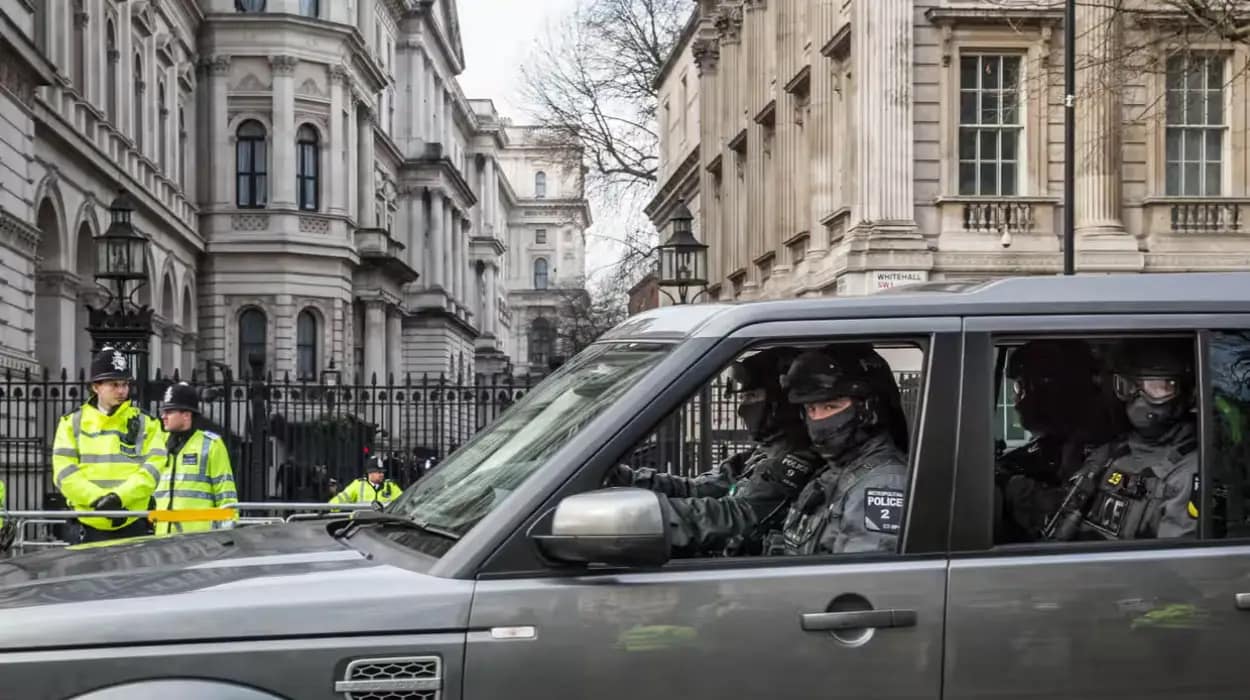UK (Parliament Politics Magazine) – UK police chiefs are planning a radical reform of counter-terrorism policing to tackle rising terrorism and serious crime across England and Wales.
As reported by The Guardian, UK police chiefs are shaping plans for a new national police force to address terrorism and serious organised crimes, as part of the latest overhaul of policing since the 1960s.
What are the proposals for independent counter-terrorism units?
According to the proposal, counter-terrorism policing units would operate independently of local forces and be integrated into a new national force covering England and Wales. This unit would be headquartered in a newly created national policing centre.
Counter-terrorism policing is managed by the London Metropolitan Police, and its head is chosen by the Met commissioner.
The proposals are being developed by the Joint Reform Team, including the National Police Chief’s Council, senior civil servants, His Majesty’s Inspectorate of Constabulary, the College of Policing, and elected police and crime commissioners.
The current proposal includes several options, but the plan to unite counter-terrorism and serious organised crime under a new national force could result in a law enforcement body with power comparable to the FBI in the United States.
The working group is also reviewing the possibility of making CTP an independent force, separate from the proposed national policing centre, rather than joining the existing structure.
The Met continues to control essential counter-terrorism operations, like policy-making and leadership, reflecting the historical role it played in leading national counter-terrorism efforts.
As part of plans for a Home Office white paper, radical police reforms are anticipated to be revealed later this year.
New national police force against the UK’s crime
The new changes come in response to rising concerns about the UK’s current policing system. This system, which relies on partnerships between 45 local forces, is struggling to address the growing national and international nature of crime.
The primary target of the proposed reforms is to increase recruitment, which would maintian the workforce. The changes will also strengthen the ability to tackle both violent extremism and state-sponsored espionage.
Counter-terrorism units in the UK
A total of 11 counter-terrorism units operate across Britain, with most officers and staff coming from different departments through secondment. These units are overseen by:
- Matt Jukes: Assistant Commissioner for Specialist Operations
- Sir Mark Rowley: Met Commissioner
- Dame Cressida Dick: Former Met Commissioner
CTP struggling with recruitment
CTP is facing significant recruitment challenges, falling short by around 900 officers and staff from its target of 9,000.
Many are hesitant to join CTP due to London’s high cost of living. The policy of recalling them to their home forces is viewed as a major challenge to maintaining counter-terrorism operations.
The shortage of experienced detectives and the force that legally employs them has led some to hesitate or withdraw their applications. One insider said, “Cobbled together from forces like Frankenstein’s monster.”
HM Inspectorate of Constabulary reports
According to a December report from the HM Inspectorate of Constabulary, the response to disorder across England prompted the call for a national coordinator position. This role would grant the power to command police chiefs to allocate riot-trained officers to be deployed nationwide during a national emergency caused by riots.
Another report is expected soon, with insiders suggesting it will also be critical. Some police officers have privately raised concerns that local forces were too slow to hand over their riot officers for the national response effort.
What did the NPCC spokesperson say about police reform plans?
A spokesperson for the NPCC stated,
“The ambition for police reform is high. We want the establishment of the national centre for policing to be the start of changes to improve policing capabilities, but it is too early to say what any future design could be.”
What did the Home Office source say about the focus of police reforms?
A Home Office source said,
“We’re working with policing, which will focus on efficiencies, tech and the use of, and enhancing capabilities on local and national scales. We will always look at what works.”
UK crime rate
Britain’s crime rate is 84 per 1,000 people as of September 2024, excluding Scotland. The crime ratio has declined by 4.0% compared to last year, as per September 2023.
Among England, Wales, and Northern Ireland, England reports the highest crime rate, with 87 incidents per 1,000 people.


